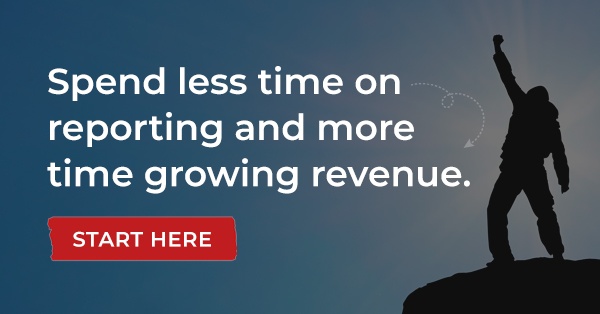Best cloud-based accounting software for startups

When your startup is growing rapidly and every decision could impact your next round of funding, price is often a major concern when selecting new software. While free or entry-level accounting software may seem appealing at first, it may quickly become inadequate as your business scales.
Choosing the right cloud-based accounting software for your startup is crucial. If you pick a solution that doesn’t grow with your business, you may face significant challenges down the line. Here are a few important factors to consider when selecting the best cloud-based accounting software for your startup.
How to find the best cloud-based accounting software for startups: Key considerations
1. Look for scalability and affordability
As your startup grows—whether you’re aiming for market domination, acquisition, or an IPO—you need a solution that can grow with you. Scalability is essential for any accounting software that will be with you for the long haul.
At the start, many entrepreneurs wear multiple hats—HR manager, marketing specialist, product manager, and CFO. Your cloud-based accounting software should allow you to do more than just data entry. It should offer advanced features that support scalable growth, such as multi-user access, financial reporting, and even inventory management.
Entry-level solutions like QuickBooks or Xero may handle basic functions such as invoicing, account management, and expense tracking. However, as your startup grows, you'll likely need more robust tools for features like consolidated financial reporting and inventory management. Waiting too long to upgrade will only make the transition more painful.
2. Simplify consolidated financial reporting
As your startup expands and includes multiple locations or entities, managing your finances with entry-level accounting software becomes increasingly difficult. Small business solutions require you to log in and out of multiple accounts, manually copy and paste data from one system to another, and spend a lot of time on month-end financial reporting.
Instead, look for cloud-based accounting solutions like Gravity Software that allow for simplified consolidated financial reporting. This feature enables you to view real-time data across multiple entities, giving you the financial insights you need to make smarter business decisions.
3. Invest in business intelligence (BI) for data-driven decisions
Business intelligence (BI) is no longer optional for startups that aim to scale quickly. Financial data analytics are essential for understanding your cash flow, burn rate, and fundraising opportunities. According to startup advisor Aaron Vick, “The ability to harness data will be the ultimate deciding factor in whether startups succeed or fail when scaling.”
"More than ever, you must have an intense focus on analyzing financial data to forecast the company’s future, monitor burn rate and pinpoint fundraising opportunities," says TokenEx, Inc. CFO Jeffrey Rudd on Forbes.com.
Built-in BI tools like Power BI offer real-time insights, allowing you to make informed decisions about your next steps. If you choose software with strong BI capabilities, you'll be able to monitor your business performance and adapt quickly.
4. Make subscription billing easy to manage
If your startup requires advanced features like subscription billing, managing it can become more complicated as you grow—especially with contracts that have specific billing terms and cycles. The best accounting software will simplify these processes and help you track customer payments and billing cycles automatically.
Look for software that allows you to define payment terms, billing frequencies, contract start and end dates, and automate invoicing. Managing subscription billing is an essential feature that will save you time and ensure your revenue recognition is always up to date.
5. Don’t overlook security
As your startup gains customers and their trust, a data breach can quickly erode that trust. Unfortunately, 82% of ransomware attacks target small businesses, believing they are easy targets. The costs of recovering from these attacks can be millions of dollars — enough to bankrupt a startup.
According to a Ponemon report, over half of all companies have experienced a data breach caused by a third-party vendor.
The best cloud-based accounting software for startups will provide robust security features to keep your data safe. Cloud-based accounting solutions with multi-factor authentication, end-to-end encryption, and strong cybersecurity practices are a must. Gravity Software, built on the Microsoft Power Platform, adheres to the highest security standards, ensuring that your financial data is protected.
Gravity Software: Affordable cloud-based accounting for growing startups
At Gravity Software, we’ve designed a solution specifically for fast-growing startups. Our cloud-based accounting software supports multi-entity financial management and integrates seamlessly with Microsoft Power BI, offering real-time insights to help you make better decisions. With Power Automate, we also help improve efficiency, enabling you to streamline workflows across your business.
Gravity Software is designed for startups that need flexibility and scalability. Our pay-per-user model means you only pay for what you need, with full user, module user, outside CPA user, and read-only options that give you the ability to add more users as your business grows.
Why chose Gravity Software for your startup?
If your startup has plans for fast growth or acquiring other businesses, why start with entry-level accounting software? By doing so, you may end up paying for conversion costs two years down the road when your needs outgrow those basic systems. Gravity Software is built to scale, so you can avoid the expensive and disruptive process of switching platforms later on.
- Scalable solutions that grow with your business
- Integrated business intelligence for data-driven decision-making
- Simplified subscription billing and automated invoicing
- Strong security built on Microsoft’s cloud platform
Ready to take your startup to the next level? Schedule a demo today to see how Gravity Software can help you manage your finances and set your business up for long-term growth.
Gravity Software
Better. Smarter. Accounting.


